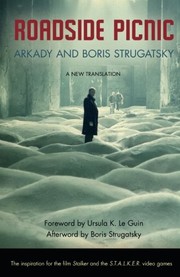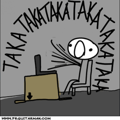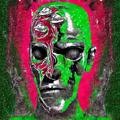Tak! reviewed Roadside Picnic by Борис Стругацкий
Roadside Picnic
3 stars
Roadside Picnic reads like a love letter to functional alcoholism.
The basic premise is that there were a series of isolated visitations to earth by unknown aliens, who subsequently fucked off and never came back. However, the places where they visited are now strewn with various items and phenomena that behave inexplicably to modern science, in ways that are often extremely dangerous to humans.
In addition to scientists coming to study the visitation zones, this also results in a black market for harvested technology, with people ("stalkers") sneaking in to exfiltrate things at great personal risk.
It's clear that this is if nothing else a spiritual predecessor to Annihilation. Everything is focused around the weird and often brutally inscrutable, with no explanation required or given. It definitely shows its age (and possibly cultural origin), especially in terms of attitudes about gender roles.
The translation was very good imo. I was …
Roadside Picnic reads like a love letter to functional alcoholism.
The basic premise is that there were a series of isolated visitations to earth by unknown aliens, who subsequently fucked off and never came back. However, the places where they visited are now strewn with various items and phenomena that behave inexplicably to modern science, in ways that are often extremely dangerous to humans.
In addition to scientists coming to study the visitation zones, this also results in a black market for harvested technology, with people ("stalkers") sneaking in to exfiltrate things at great personal risk.
It's clear that this is if nothing else a spiritual predecessor to Annihilation. Everything is focused around the weird and often brutally inscrutable, with no explanation required or given. It definitely shows its age (and possibly cultural origin), especially in terms of attitudes about gender roles.
The translation was very good imo. I was a little apprehensive after having read a terrible translation of Metro 2033, but no complaints on that front.




